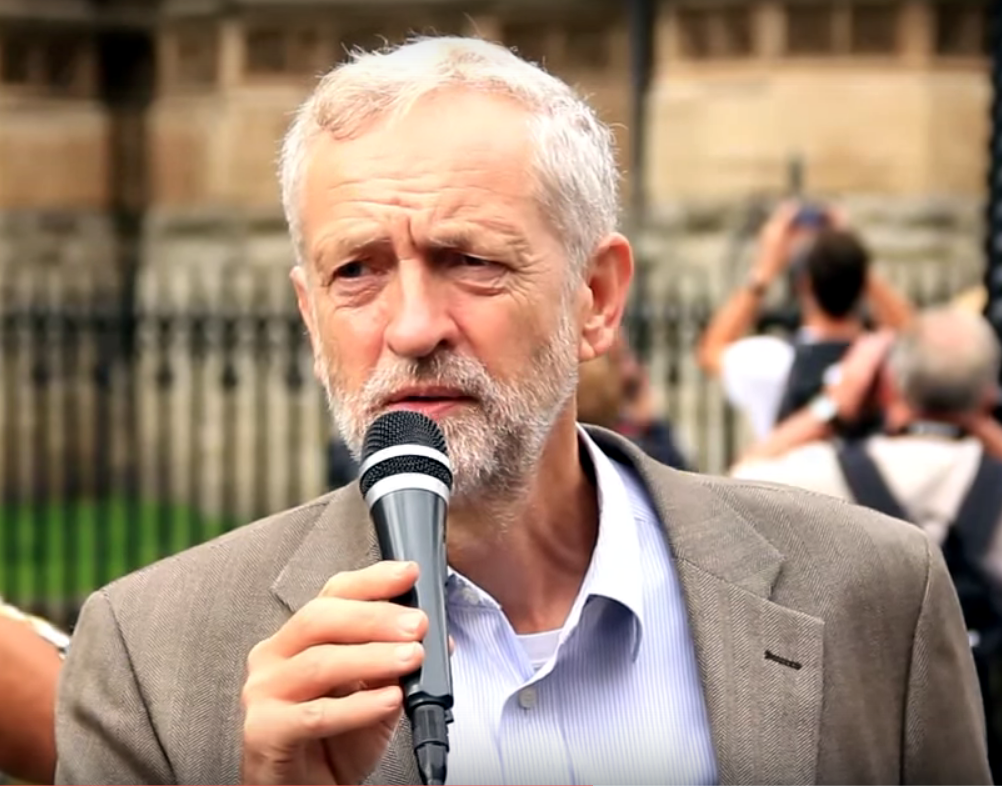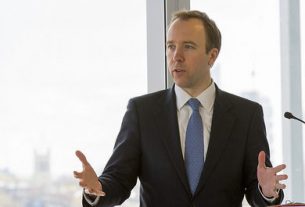Jeremy Corbyn’s decision to be un-divisive and “neutral” over Brexit has been attacked by opponents seizing on the opportunity to portray him as a “bystander” and “decidedly undecisive.”
The Labour leader told BBC Question Time his position on Brexit was to take a “neutral stance” adding later, that being an “honest broker” was a “sign of strength and maturity”.
For critics it was easy to attack the man who has repeatedly implored voters to decide “who’s side on you are?” through the election campaign – given the Labour leader’s “neutral stance” is effectively no-side-at-all, on the defining political issue of the day.
Whilst Brexit is not the focus of Corbyn’s question – it’s “dodgy landlords, tax dodgers, bad bosses and big polluters” versus the side of Labour’s “for the many not the few” – the UK’s future relationship with the EU remains the key issue ahead of December 12’s general election.
Tories jumped all over the chance to declare the Labour leader was “deciding to be undecisive” on the issue that has split the nation.
Deciding to be undivisive
He responded at a campaign stop in Sheffield: “I think being an honest broker and listening to everyone is actually a sign of strength and a sign of maturity,” and said, his was the “sensible way forward that actually can bring people together.”
Jo Swinson, leader of the Liberal Democrats described it as “a total absence of leadership. Remainers in this country need a leader not a bystander.”
Health secretary Matt Hancock told Sky News: “He has actively decided to be indecisive on the biggest issue of the day. It won’t wash with voters.”
Corbyn’s admission in front of the television cameras, comes more than two months after he had already announced his Brexit position would be neutral. In a column in the Guardian Corbyn called for a “sensible deal” with the EU, to be put to the public in a referendum where “Remain” is the other option.
Who’s up, who’s down? Opinion poll latest
. Oct 12 Nov 23
Conservative 34% 43%
Labour 27% 30%
Lib Dems 19% 15%
Brexit Party 12% 4%
Green 4% 3%
Source: the Independent
The Conservatives have enjoyed the best campaign so far, according to the poll published in the Independent, boosting their share from 34% on October 12 to 43% on November 23. (Margaret Thatcher won landslide victories and secured huge parliamentary majorities but never won more than 43% of the overall vote.)
The Tory boost has come mostly at the cost of Nigel Farage’s Brexit Party (BP) whose share has fallen from 12% to just 4%. Nigel Farage’s decision to stand-down 317 BP candidates to give Conservatives a better chance of holding seats immediately cut their appeal simply because it took away the choice to vote BP from 317 constituencies.
Farage’s party are instead targeting Labour-Leave voters, though how far their partisan-pact with the Tories makes it harder to appeal to staunch Labour traditionalists will not be seen until December 13. However, the Brexit party have had the worst campaign in terms of share of the vote which is down 8%, or, more worryingly for Farage, an equivalent of two-in-three of their voters abandoning them.
‘Modern campaigning requires ever-narrower targeting of voters’
Labour’s share has increased from 27% to 30% and the party will be looking for another late surge of support from voters as awareness of their manifesto pledges grows.
In 2016 Theresa May called a snap general election, expected a landslide victory but ended up losing her majority as a Tory 20-point poll-lead disappeared as Labour took 40% of the overall vote.
May’s policy advisor Nick Timothy resigned and tried to explain some of the result as being “because modern campaigning techniques require ever-narrower targeting of specific voters, and we were not talking to the people who decided to vote for Labour”. The focus was on Brexit and the promise of “strong and stable leadership instead of a coalition of chaos”, when, said Timothy, they should have instead spoke more about the NHS and the energy price gap, in order to win over Labour voters.
Social-media manipulator
Johnson has clearly heeded Timothy’s analysis and has even announced the Tories will forgo a promised tax cut for businesses in order to spend £6 billion more on the NHS, ”and other services.”
The PM’s special advisor Dominic Cummings is characterised in the media as a social-media manipulator/digital advertising genius and has said linking Brexit to increasing NHS spending – £350 million a week, emblazoned on the side of a red bus – won the referendum for the Leave campaign.
Labour’s late surge in 2016 was a result of May’s many mishaps combined with Labour’s ability to appeal to voters on issues beyond Brexit – the NHS, austerity and energy price gap, in particular.
Corbyn will be hoping for an improved performance this time and published “the most radical and ambitious plan to transform” the UK earlier this week, with Labour’s manifesto promising “popular, fully costed” policies that the BBC estimate will cost some £700 billion.
Labour’s rise in the opinion polls – up three points from 27% to 30% – seems to have come at the Libe Dem’s expense.
Lib Dems leaking support, Greens hold steady
Jo Swinson’s Liberal Democrats have endured a poor campaign to date and seen support leak away with their share falling 4% – from 19% to 15%.
Swinson is failing to appeal to voters as hoped and she was denied a place in the ITV televised leaders debate that saw Corbyn go head-to-head with Johnson.
The Lib Dems are pushing their status as the “only truly Remain” party and seemingly making their campaign all about Brexit. When other issues are raised, Swinson is attacked for having supported Conservative austerity policies, evidenced by her voting record in parliament.
The Green party published their manifesto – promising £100 billion per year investment to make the UK carbon neutral by 2030 – and have seen their agenda become an increasingly important issue in the election campaign.
All parties are loudly extolling their green-credentials and plans to tackle the climate change crisis, taking a lot of focus of the Green party itself. As such, their share of the vote remains around the same base level but did increase by 1% – from 3% to 4%.
A statistician could say they have actually increased their share by a third and boosted their level of support by 33% – a significantly better performance than any other party.
Theresa May might say: “History shows polls are never to be trusted.”




